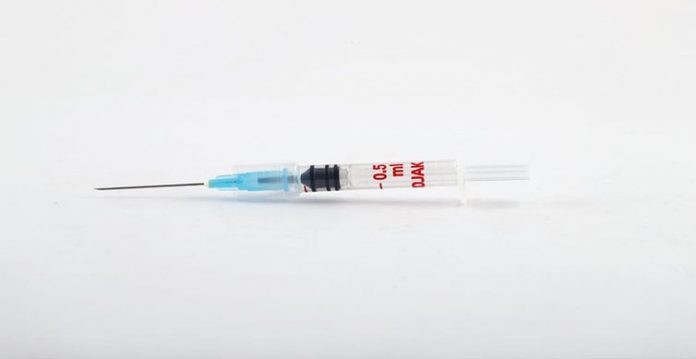UK National Health Service is soon set to roll out immune-boosting drugs to protect 10 percent of patients who fail to respond to the Covid vaccine, the media reported.
While Covid jabs have proved effective in preventing severe illness, hospitalization, and death among 90 percent of people, scientists believe between five and ten percent of the fully vaccinated people, could still become severely unwell with Covid.
These are mainly those with weakened immune systems which means their bodies cannot mount a strong defense to the virus.
ALSO READ: UK shifts India from ‘red’ to ‘amber’ list. Quarantine restrictions changed
Administering such people with the additional drugs known as monoclonal antibodies can prevent Covid infection — even if they’re living in a house with someone infected, said the report, quoting a recent study published in The New England Journal Of Medicine.
The drugs target the spike protein — the section of the virus that allows it to bind with healthy cells and help reduce the amount of virus that can enter the body and the likelihood of serious symptomatic Covid.
The UK Government has entered into discussions with a number of major pharmaceutical companies who have developed Covid-19 monoclonal antibodies. This includes Regen-Cov, developed by American firm Regeneron, a combination of two drugs, casirivimab, and imdevimab. The drug reduced the risk of symptomatic infection by 93 percent, while the risk of symptomatic and asymptomatic infections overall fell by 66 percent, the report said.
US-based Eli Lilly has developed a combination called bamlanivimab and etesevimab, which was able to reduce Covid hospitalizations and deaths by 70 percent.
Meanwhile, British pharmaceutical giant GlaxoSmithKline’s sotrovimab has been proven to reduce the risk of hospitalization and death in high-risk groups by 79 percent.
Monoclonal antibodies — used in medicine since the 1990s for conditions ranging from cancer to arthritis — are already in use in America, Europe, and Asia, and significantly enhance the effect of the Covid vaccine in these high-risk groups.
SOURCE: IANS







